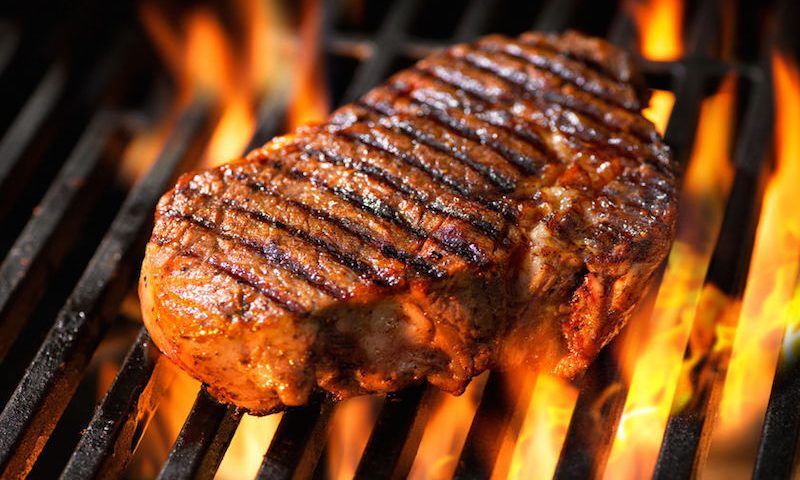
Good news for braai lovers in South Africa
Meat prices in South Africa should start coming down in a few months, according to the Bureau for Food and Agricultural Policy (BFAP), as international prices take a downward turn, and local costs start to ease.
The group published its latest Food Inflation Brief for March 2023, reflecting on the persistently high food inflation in the country.
Food inflation hit 14% in March, curbing international trends which show global food prices going in the opposite direction. Local food inflation has been adversely impacted by a weaker rand and local pressures – such as load shedding – on overall production costs.
Despite food inflation being stubbornly high, the BFAP said the prospects for the rest of the year look much better.
“While the weakening of the exchange rate in the first quarter of 2023 has prevented lower international grain and oilseed prices from fully reflecting in the domestic market, local prices for maize and soybeans are expected to ease further based on expectations of a bumper summer crop.
“Some of this decline has already been observed in April,” it said.
In anticipation of the surplus locally, maize and soybean prices are trading significantly below export parity, with maize declining the fastest.
There is also good news for meat prices, which have been one of the main drivers of food inflation.
According to the BFAP, the livestock and dairy markets are experiencing a global price downturn. However, local issues persist and are undercutting these declines.
For example, international poultry prices have been decreasing steadily; however, the decline has been offset by the weaker rand in the local market.
The global dairy market is seeing a continued reduction in prices – but in the local market, the increase in input costs continues to offset price gains in milk and dairy products.
Adding pressure to the market, further reductions in dairy production in South Africa are expected, the BFAP said, resulting from increased input costs due to load shedding, high feed costs and other supply chain disruptions.
Also contributing to the decline in milk production is the lower demand for dairy products, as consumer purchasing power is reduced with the increase in prices of other food products.
Vegetable prices, which have also remained high due to the lateness of the season, have seen producer prices drop in April, which points to price relief in the coming months.
Braai days
On the meat side, the decline in grain and oilseed prices is positive for the livestock industry through the relief in feed prices. However, the BFAP noted that biosecurity issues still hampered beef exports, resulting in depressed weaner prices.
“The extended period of high feed prices, combined with the biosecurity challenges, has led to reduced stocking and slaughter volumes through January and February were well below that of a year ago,” it said.
However, carcass prices are down, which should reflect in retail prices in a few months’ time.
“At the retail level, dynamics differ amongst the various cuts – significant additional costs in the chain are being passed through more successfully for top-end cuts, where consumers are typically more affluent, while prices of lower-priced cuts have come under more pressure,” the group said.
This can be seen with prime cuts of meat like fillet and sirloin, with prices up over 30% year-on-year.
News Category
- International retailers
- On the move
- Awards and achievements
- Legislation
- Wine and liquor
- Africa
- Going green
- Supplier news
- Research tools
- Retailer trading results
- Supply chain
- Innovation and technology
- Economic factors
- Crime and security
- Store Openings
- Marketing and Promotions
- Social Responsibility
- Brand Press Office
Related Articles

Empowering South African households through gro...

SPAR shares practical tips to beat food inflation

South African motorists could be paying up to R...

Big VAT changes on the cards


